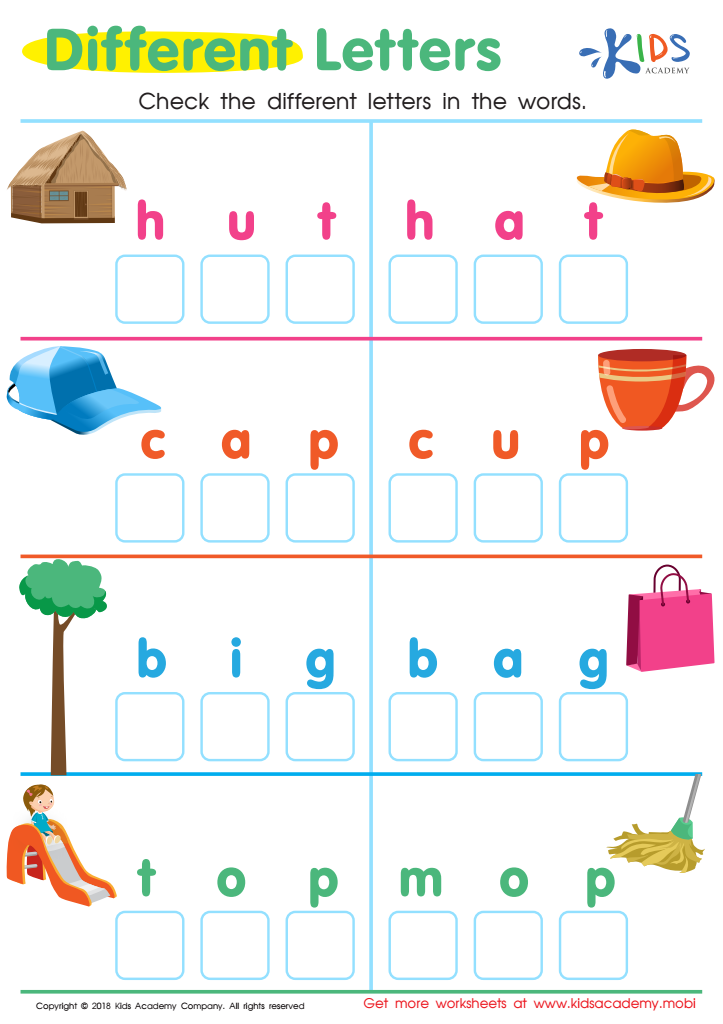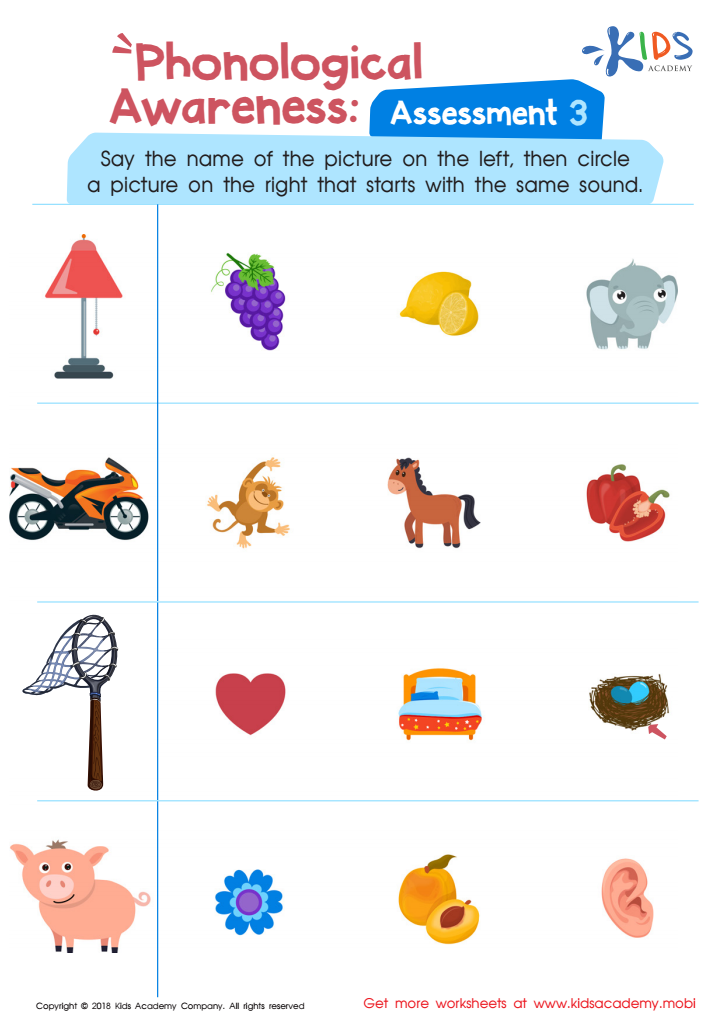Letter recognition Elementary Phonics Worksheets for Ages 3-5
5 filtered results
-
From - To
Discover a delightful collection of Letter Recognition Elementary Phonics Worksheets designed for ages 3-5. Our engaging printable worksheets help young learners identify and recognize letters through fun, interactive activities. Perfect for preschool and kindergarten students, these worksheets focus on developing foundational reading skills. Bright visuals and gentle guidance ensure a positive learning experience, boosting confidence and fostering a love for reading. Ideal for teachers and parents, these resources make letter recognition enjoyable and effective. Start your child's literacy journey today with our expertly crafted worksheets that turn learning into a joyful adventure!


Long and Short U Worksheet


Different Letters Reading Worksheet


Phonological Awareness: Assessment 3 Worksheet


Long and Short E Worksheet


Phonological Awareness: Assessment 1 Worksheet
Letter recognition and elementary phonics are foundational skills in early childhood education, critical for children aged 3-5. Parents and teachers should prioritize these areas because they lay the groundwork for future reading and writing proficiency. When children recognize letters and understand their corresponding sounds, they develop phonemic awareness, which is the ability to hear, identify, and manipulate individual sounds in spoken words.
Strong letter recognition skills allow children to make connections between letters and sounds, an essential step in decoding words when they start reading. These skills are linked to better performance in reading later, as numerous studies highlight how early phonics instruction correlates with improved literacy skills.
Early exposure boosts children's confidence, setting a positive tone for their entire journey in education. When children can understand the basics of language, they are more likely to enjoy reading, leading to a lifelong love of learning. Moreover, early proficiency in phonics can aid in cognitive development, fostering greater problem-solving abilities and critical thinking skills.
In summary, focusing on letter recognition and elementary phonics in preschool years equips children with essential tools for academic success and an enriched intellectual life, laying a solid foundation for their entire educational path.
 Assign to My Students
Assign to My Students










